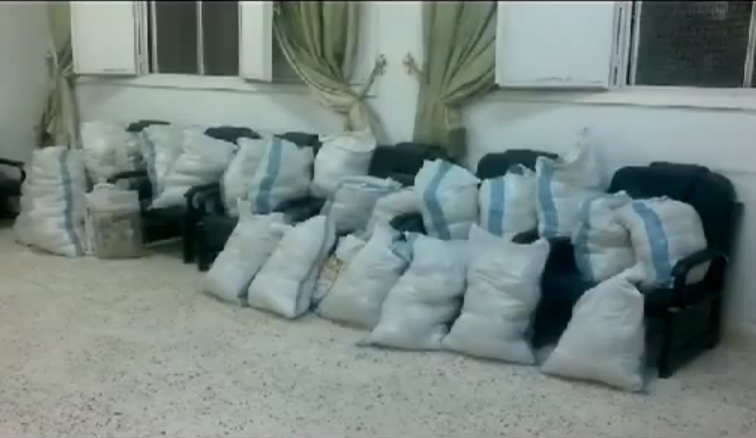In recent weeks, the media has been occupied with the declaration by the Obama Administration that it will publicly supply arms to insurgents.
This, however, is not the only public relations effort out of Washington — the State Department is trying to show how the US, working with the opposition Syrian National Coalition, is assisting ordinary Syrians through the provision of humanitarian aid.
On Friday, Al-Monitor reported on the efforts of a “new Syrian institution”, the Assistance Coordination Unit (ACU), to help the US deliver vital supplies to insurgent-controlled areas.
Although the story is ostensibly about the ACU — the humanitarian wing of the Syrian National Coalition — Al Monitor did not talk to anyone from that organization. Instead, the narrative is controlled by one Mark Ward, a “senior adviser to the State Department” on aid to Syria.
This is the public-relations pitch:
US humanitarian assistance to Syria since the war began more than two years ago exceeds $815 million and is focused on food and acute medical care. Ward said that flour and food baskets paid for by the United States are feeding more than 200,000 people a day in Aleppo. The US has also delivered via the ACU and internal NGOs portable surgical equipment, surgical drugs and kits to turn basements into sterile operating rooms.
“We’ve treated thousands of wounded rebel fighters, thousands of people in the community in the wrong place at the wrong time and even injured regime fighters,” Ward said.
US aid has gone primarily to seven provinces in the north of Syria near the Turkish border which are relatively calm and under opposition control, as well as to Syrians displaced within the country and refugee populations outside Syria.
Notably, Ward also says the ACU — which, as part of the Syrian National Coalition, is based in Istanbul — has opened an office in Jordan and that it “may seek to help coordinate aid to the south of Syria as well as helping the Jordanian government deliver assistance to [refugees]”.
Although not highlighted, this is a key piece of information. It establishes the attempt to work with the Jordanian Government on humanitarian issues, at the same time the US is maneouvring with Amman — and with European allies and Arab states such as Saudi Arabia and Qatar — over the delivery of arms.
Even more significant, however, is what is missing from the story.
There is no concrete evidence of where US humanitarian aid is going and how it is reaching Syrians. How does Ward know that US aid is feeding 200,000 people in Aleppo? Which insurgent groups on the ground are working with the US and the ACU to deliver supplies?
We are left with no aid of how Ward’s assertions, and the work of the ACU, might intersect with the evidence that we do have of insurgent groups and local charitable organizations establihing their own local networks for provision of humanitarian aid.
This video from May shows the Al Furqan Charity Association — an Islamic charity that provides assistance in Syria — delivering food baskets to people in Aleppo:
This video shows the group delivering infant formula in the city:
This footage shows another group, the Syrian Noor Assocation, handing out flour in Qamishli, a mixed Kurdish and Arab city on the Turkish border:
A clip from today shows insurgents in Raqqa packing up Ramadan food baskets to distribute to the needy:
Meanwhile, the US Government has recently been criticized for being slow in providing aid to Syrians. Last month, McClatchy noted that, while the US had pledged $800 million, “Both the humanitarian and nonlethal aid are extremely hard to track to their intended destinations, given the chaos of wartime Syria, the number of agencies involved and a reluctance to label aid as coming from the United States because of political concerns.”
So should we read Ward’s declaration and the “Assistance Coordination Unit” as confirmation that Washington and its favoured opposition are winning Syrian hearts and minds through aid?
Or is it more likely that Friday’s story was more of a PR effort aimed at the hearts and minds of audiences outside Syria?

